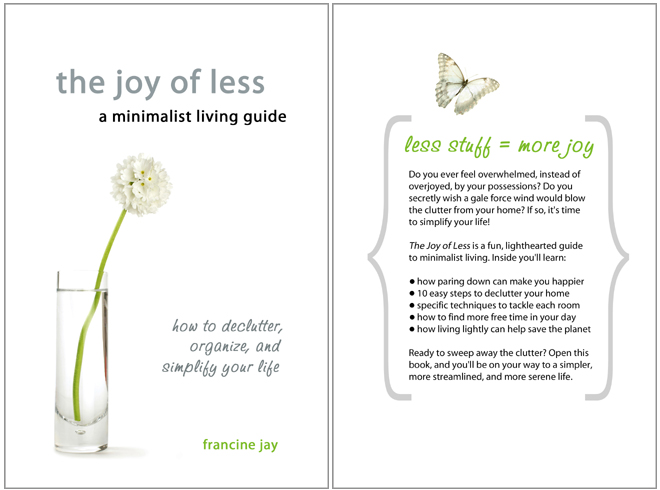
I just finished reading Francine Jay's The Joy of Less: A Minimalist Living Guide, and have to say that it's one of the best books I've read on the topic of de-cluttering and the benefits of a minimalist lifestyle.
In her chapter on "Seeing your stuff for what it is", Jay suggests walking around your home, asking each item:
“What are you and what do you do?”
“How did you come into my life?”
“Did I buy you, or were you given to me?”
“How often do I use you?”
“Would I replace you if you were lost or broken, or would I
be relieved to be rid of you?”
“Did I ever want you in the first place?”
Though I don't have much in the way of "stuff", the above six questions have helped me cull even more from my collection--particularly with regard to the things I've held onto out of a sense of guilt or obligation.
In being a good gatekeeper, limiting the number of new (or used) items that come into your home, ask the following questions of each potential purchase or acquisition:
"Do you deserve a place in my home?"
"What value will you add to my household?"
"Will you make my life easier?"
"Or are you going to be more trouble than you're worth?"
"Do I have a place to put you?"
"Do I already have something that could accomplish the same task?"
"Will I want to keep you forever (or at least a very long time)?"
"If not how hard will it be to gt rid of you?'
This asking "Why?" before we buy also applies to other things that could make their way into our lives, including gifts, freebies, promotional items, hand-me-downs etc. Just say no (or "thank you", to the gift-giver), then find the item a new home where it will be truly appreciated.
And finally, when going through the items you've deemed useful and/or beautiful, ask of each:
"What is it used for and how often do you use it?"
“Have you used it in the past year?”
“Do you expect to use it in the near future?”
“Does it make your life easier, more beautiful, or more
pleasurable? How?”
“Do you have something similar?”
“Is it hard to maintain or clean, and if so, is it worth the
effort?”
“Would it be difficult or expensive to replace?”
“Would you take it with you if you were moving?”
“How would your life change if you didn't own it?”
“What is more valuable to you—the item, or the space it
occupies?”
I've been inspired by The Joy of Less to continue to pare down my belongings to what I absolutely use and love, and my activities and commitments to what I find truly uplifting and enriching. If you're feeling bogged down by any of the above and could use a little more space in your life, this book is well worth reading.
Happy de-cluttering!
(and check out Francine Jay's blog http://www.missminimalist.com/ for more ideas and inspiration)
